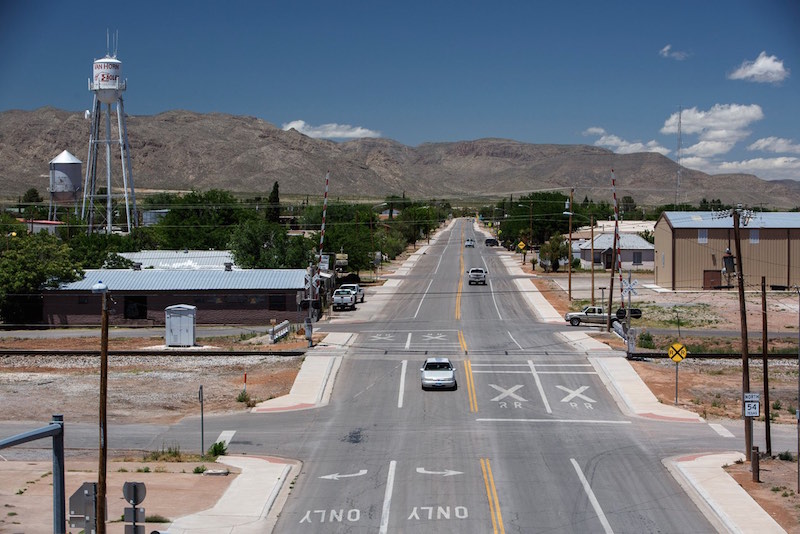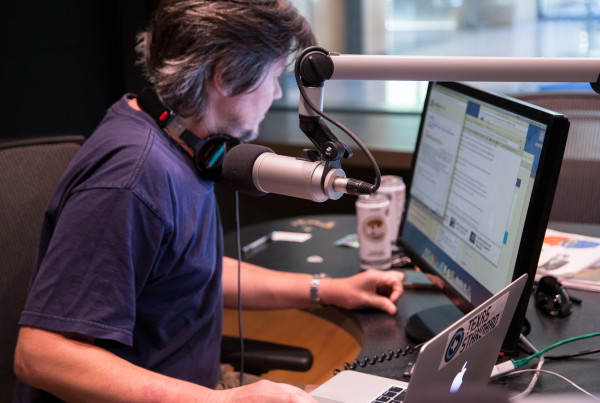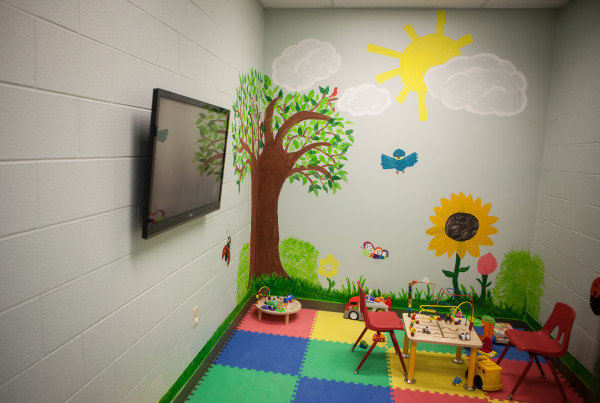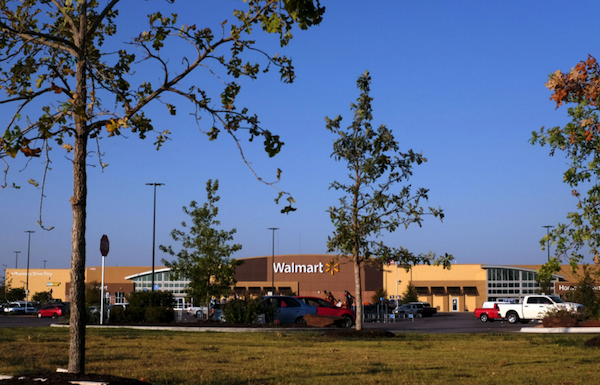More than half a century after NASA came to Houston to pursue human spaceflight, Texas is again home to an new, mostly private space industry. Excitement surrounds these multi-billion-dollar investments, but what do they mean for Texans who live near these future launch sites?
The Texas Tribune‘s new project Starstruck, where this story comes to us from, explores that question.
Blue Origin is not an easy company to contact. Its spokeswoman says they don’t do interviews, and there’s no email address or phone number to call on their website. The only thing you can do is walk up to the front door and ring the doorbell.
“Blue Origin, this is Justine.”
“Hi, can you hear me?”
“Yes ma’am.”
“My name’s Neena Satija, I’m a reporter with the Texas Tribune.”
“Yes ma’am.”
“We were just curious if we could get a site tour or get a sense of what’s going on out here?”
“Ha. I doubt it, but I could give you a better contact number.”
That conversation happened right outside of the company’s blue, unmarked gate 25 miles north of Van Horn, in remote West Texas. It’s the closest we ever got to speaking with a Blue Origin employee, and locals here haven’t gotten much closer. Van Horn Mayor Glenn Humphries has never been past that blue gate.
“I would imagine there’s a launch pad,” Humphries says. “I would imagine there’s some sort of weather monitoring equipment. Beyond that, it’s all kind of fantasy.”
Here’s what we do know: Blue Origin, founded by Amazon’s Jeff Bezos, moved here in 2005. Its state goal is to create affordable, commercial, manned missions into space. But the locals don’t know how long that will take, or what it could mean for Van Horn’s economy. That frustrates the county judge, Carlos Urias.
“It’s a shame that the county judge and/or the mayor cannot tell you, ‘Well, this is that,'” Urias says. “We never have sat down with management. Never have.”
Earlier this year, the residents of Van Horn did see a white cloud streaking across the sky. That was Blue Origin’s first successful test launch, which came several years later than planned. The company says it will still be even more time before it tests manned missions.
Urias is impatient. Even though Blue Origin moved in on its own volition — without asking for tax incentives or public dollars — locals want the community to reap an economic benefit.
“What have they done to the city of Van Horn? They’ve employed individuals, sure. And new businesses? I don’t see it. Helping tourism? I don’t see it,” Urias says.
If officials here seem restless, it’s because Van Horn could use the boost. The town’s median household income is just $37,000, and its population has nearly halved in the last 30 years.
Seven-hundred miles away in South Texas, another private space exploration company, Elon Musk’s SpaceX, is making public commitments to the community in exchange for some local tax dollars.
“The region would get upward of 500 jobs, I think the capital investment is between $80 million to $100 million,” says Gilberto Salinas, with the Brownsville Economic Development Council. “The very first interplanetary travel could happen from Boca Chica Beach in Brownsville, Texas.”
So far, the idea is still science fiction. SpaceX had a setback earlier this year when one of its rockets exploded after launching from the Florida coast. The company has pushed back its first Brownsville launch from 2016 to 2018. In an email, spokesman Phil Larson says the company is moving full steam ahead in South Texas and is “excited to partner with local communities in this effort.”
“I think this will attract people to the area,” Gary Cadenhead says. Cadenhead is the director of the master of science and technology commercialization program at the University of Texas at Austin.
“I think it will attract people to all over Texas,” he says. “I would be surprised if, at some point, SpaceX doesn’t establish some kind of operation here in Austin.”
Cadenhead says the space industry isn’t all about launches and landings. Either way, you need engineers and mechanics. SpaceX says the jobs it creates will pay twice the average salary people in the area currently make. Cadenhead says he’s optimistic.
“I don’t know if it’s this year, or next year, but it’s probably within the next five years,” Cadenhead says.
For now, in Van Horn and Brownsville, all the locals can do is watch and wait.














